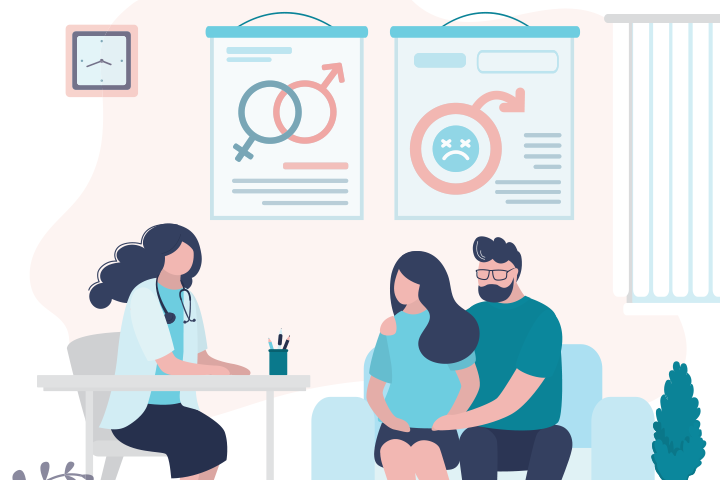Men’s Health edition of The Pulse
Erectile dysfunction is a problem many people won't talk about but affects millions of men worldwide.
Having erection issues occasionally is normal. But if getting or maintaining an erection is common, you may have erectile dysfunction (ED).
It's important to address consistent erection issues because they can point to underlying health conditions.
Types of Erectile Dysfunction
Erectile dysfunction (ED) has two types — organic erectile dysfunction and premature ejaculation.
Organic ED is the most common form of ED. Experts usually attribute it to abnormalities of the arteries and veins in the penis. Common causes of organic ED are:
- hardening of the arteries
- trauma to the arteries
- atrophy (tissue loss)
- fibrosis (excess growth of tissue)
Premature ejaculation occurs when you can't withhold ejaculation before or within one minute of penetration during all or most sexual encounters. Premature ejaculation has two types:
- lifelong – premature ejaculation since your first sexual encounter
- acquired – premature ejaculation after normal sexual encounters in the past, such as performance anxiety

What are the Risk Factors?
There are physical and psychological risk factors for ED such as:
- being over age 50
- type 2 diabetes
- obesity
- high blood pressure or cholesterol
- using drugs, alcohol and tobacco
- chronic diseases like renal failure, vascular disease, and heart disease
- hormonal imbalances such as low testosterone
- certain prescription medications
- mental health conditions like anxiety, depression and stress
- relationship issues
If you're worried about ED, talk to your provider. In some cases, ED can be a result of an underlying condition that needs treatment.
Diagnosis and Treatments
Determining the cause of your ED helps your provider decide which treatment is best for you. During the diagnosis, your provider may:
- ask questions about your medical history, sexual history, ED symptoms, and mental health
- give a physical exam to check your overall health focused on your genitals, heart and circulatory system and prostate
- order blood and urine tests
Treatment for ED can be as simple as lifestyle changes to improve your heart and vascular health or addressing mental health and emotional problems. Beyond lifestyle changes, your provider may recommend:
- prescription medications to help you get and keep an erection
- hormone replacement therapy to increase testosterone levels
- penile implant surgery

Coping with Erectile Dysfunction
ED doesn't just affect you; it impacts your sexual partners as well. It's natural to feel awkward or embarrassed when talking about ED with your partner, but it's an important conversation. Remember:
- You aren't alone. Millions of men have ED.
- Communication is key in any relationship. Choose a time to talk with your partner outside the bedroom and tell them how you feel about ED.
- Remind them this doesn't mean you're not interested in a sexual relationship, and ED is a medical condition.
- Educate them about different treatment options.
- Intimacy doesn't require an erection. You can be intimate with your partner in a variety of ways, both sexual and non-sexual. Talk openly with them about what you're both comfortable with.
Resources
Search for an in-network doctor who can help:
Sources
- Urology Care Foundation. What is Erectile Dysfunction?, June 2018.
- Johns Hopkins Medicine. Erectile Dysfunction, Accessed May 25, 2023.
- Harvard Health Publishing. 7 Strategies for Partnering Up with ED, November 2020.